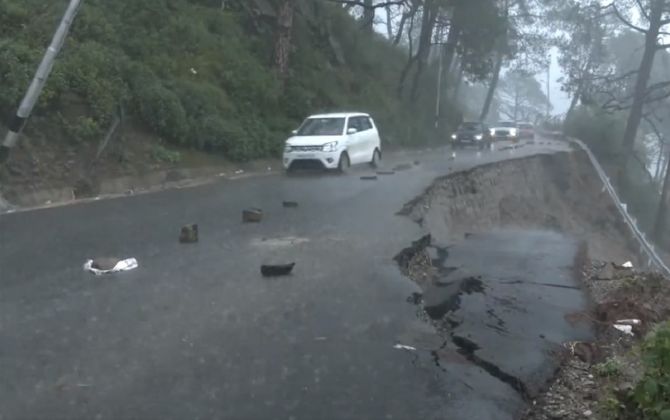National Conference chief bats for sustained Indo-Pak dialogue
 National Conference president and former Union minister Farooq Abdullah today batted for normalisation of relations between nations in the subcontinent while emphasising the need for carving out a situation where people could move around freely like in the European Union (EU).
National Conference president and former Union minister Farooq Abdullah today batted for normalisation of relations between nations in the subcontinent while emphasising the need for carving out a situation where people could move around freely like in the European Union (EU).
“If the EU can do it, why not India, Pakistan, Bangladesh and other neighbouring countries,” asked Farooq in his keynote address at a day-long conference.
The event was organised by the Bangladesh Bharat Pakistan Peace Forum on the importance of peace and unity initiatives between the three nations at the youth hostel in Nagrota this morning. National Conference provincial president Devender Singh Rana was present.
Farooq hoped that nations in the subcontinent would eschew myopic tendencies and hostilities and work for an enabling environment for generations to lead a peaceful and dignified life.
“How long shall hostilities of the past cast a dark shadow on the present and future in a fast-changing global scenario,” he asked. He said people of the subcontinent had the right to grow in a free and fearless environment.
He said the era of mistrust and suspicion had retarded the growth of nations in the subcontinent. This disgusting situation needed to be ended and the sooner the better, he said.
The NC president called for a sustained Indo-Pak dialogue, saying hostilities between the two nations had impacted peace and tranquillity in J&K.
He said the state would be the biggest beneficiary of peace in the region as it has witnessed a horrifying saga of instability and bloodshed due to border tension and militancy.
Dr Abdullah squarely blamed western powers for promoting terror scourge and said the world at large had suffered due to it.
He said the two nations cannot wish away each other and therefore, New Delhi and Islamabad must seriously and purposefully get engaged to take the peace initiative forward.
He hoped that the two countries would take concrete measures to continue the dialogue process for lasting peace, saying confrontation had no place in bilateral relations.


